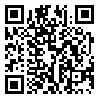BibTeX | RIS | EndNote | Medlars | ProCite | Reference Manager | RefWorks
Send citation to:
URL: http://mjiri.iums.ac.ir/article-1-3381-en.html
Background: Child abuse is a significant public health and social problem worldwide. It can be described as a failure to provide care and protection for children by the parents or other caregivers. This study aimed at evaluating the effectiveness of psychosocial interventions in abused children and their families.
Methods: This quasi-experimental study was conducted in the psychosocial support unit of a pediatric hospital in Bandar Abbas, Iran, from 2012 to 2013. The participants consisted of child abuse cases and their parents who referred to the psychosocial support unit to receive services. Services delivered in this unit included parenting skills training, psychiatric treatments, and supportive services. The effectiveness of the interventions was assessed with Child Abuse Questionnaire, General Health Questionnaire (GHQ), and Strengths and Difficulties Questionnaires (SDQ). Participants were assessed at baseline, at 3, and 6 months follow-ups. ANOVA with repeated measures and Friedman test were used to evaluate the effect of the interventions.
Results: A total of 68 children and their parents enrolled in this study, of whom 53% were males. Post-intervention follow-ups revealed significant changes in mothers' general health questionnaire (p<0.001), and children's conduct problem (p<0.05), hyperactivity (p<0.001), and peer problems (p<0.05). Physical and emotional abuses significantly decreased (p<0.001).
Conclusion: Our findings revealed that psychosocial interventions effectively improved child-parents interaction and mental health of parents. The effectiveness of interventions based on subgroup analysis and implications of the results have been discussed for further development of psychosocial interventions in the health system.
| Rights and permissions | |
 |
This work is licensed under a Creative Commons Attribution-NonCommercial 4.0 International License. |







